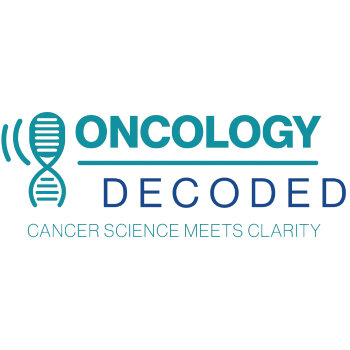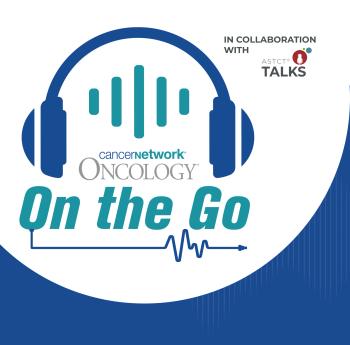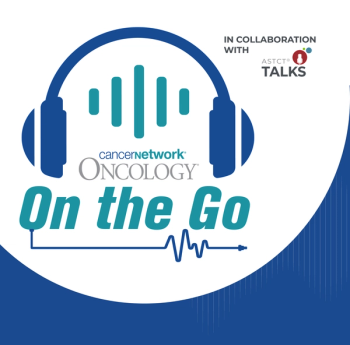
Stephen Liu, MD; and Joshua Sabari, MD, discuss the most intriguing non–small cell lung cancer and small cell lung cancer breakthroughs from the meeting.

Your AI-Trained Oncology Knowledge Connection!


Stephen Liu, MD; and Joshua Sabari, MD, discuss the most intriguing non–small cell lung cancer and small cell lung cancer breakthroughs from the meeting.

Manojkumar Bupathi, MD, MS, and Benjamin Garmezy, MD, discuss abstracts from the 2025 ASCO Annual Meeting that may impact genitourinary cancer care.

Experts from Washington University in St Louis discuss dosing considerations and toxicity management strategies for TROP2-targeted ADCs in NSCLC.

An expert panel highlights key presentations in multiple myeloma, lymphoma, and other hematologic malignancies at the 2025 ASCO Annual Meeting.

Experts weigh in on the practical applications of PSMA PET imaging

Professor of pharmacology Eric Winer, MD, spoke about a publication he authored exploring the state of oncologist burnout and how it impacts practice.

Experts in gynecologic cancer, genitourinary malignancies, and other disciplines highlight noteworthy clinical data slated for presentation at ASCO 2025.

Authors of a manuscript published in ONCOLOGY® discuss how artificial intelligence may help with cancer detection and improving various patient outcomes.

Manojkumar Bupathi, MD, MS, and Benjamin Garmezy, MD, highlight exciting trials in the genitourinary cancer space expected to be presented at 2025 ASCO.

Advances in next-generation sequencing and gene expression are reshaping T-cell lymphoma classification and the use of targeted therapies.

Therapies such as betibeglogene autotemcel have been “life-changing” for patients with β-thalassemia, according to Nora M. Gibson, MD, MSCE.

Oncology Decoded hosts discuss adjuvant therapy in kidney cancer, including research, treatment strategies, and management of recurrence.

A dedicated, well-trained, and expert staff at the Ivy Brain Tumor Center enables the facility to be at the forefront of cutting-edge radiosurgery treatment.

Findings highlight a need to incorporate diverse populations when developing guideline-concordant breast cancer care to achieve efficacy for all patients.

Integrating psychosocial care into cancer care allows patients to receive emotional support, counseling, and coping strategies to help navigate treatment.

Experts from Sibley Memorial Hospital discuss how multidisciplinary work has enhanced outcomes such as survival and resource use at their institution.

A recent Oncology Decoded podcast focuses on adjuvant therapy like pembrolizumab and optimal post-surgical care for patients with kidney cancer.

The “inescapability” of climate hazards may necessitate prioritization of research to improve outcomes among vulnerable populations who require treatment.

Experts from Washington University in St. Louis discuss prior data and strategies for mitigating toxicities like CRS associated with tarlatamab in SCLC.

Low grade serous ovarian cancer, a rare epithelial ovarian cancer subtype, requires differentiated treatment from its high-grade counterpart.

Hear from leading cancer experts about the lasting impact the COVID-19 pandemic has left on clinical practice.

A brief overview of the current RCC landscape was provided in the most recent Oncology Decoded podcast.

A patient case of a 50-year-old man with hormone-sensitive prostate cancer sparked a debate among oncologists regarding the best course of action.

Shernan Holtan, MD, and Rahul Banerjee, MD, FACP, discussed various trials of significance shared as posters and presentations at the 2025 Tandem Meeting.

The approval of sotorasib plus panitumumab is a “welcome step” in KRAS G12C-mutated colorectal cancer, according to Marwan G. Fakih, MD.

Clinicians outline the significance of the MZL Workshop, where a gathering of international experts in the field discussed updates in the disease state.

Experts from Washington University in St. Louis discuss trial results and infusion-related reaction management for amivantamab in EGFR-mutated NSCLC.

Eric Jonasch, MD, believes that the Kidney Cancer Research Consortium may broaden their reach to provide care to many different groups of patients.

Shwetal Mehta, PhD, emphasizes her institution’s patient-focused and scientifically rigorous philosophy when developing new therapies in brain cancer.

Michael P. Bogenschutz, MD, discusses the efficacy, safety, implementation, and future research of psilocybin for cancer-related psychological events.